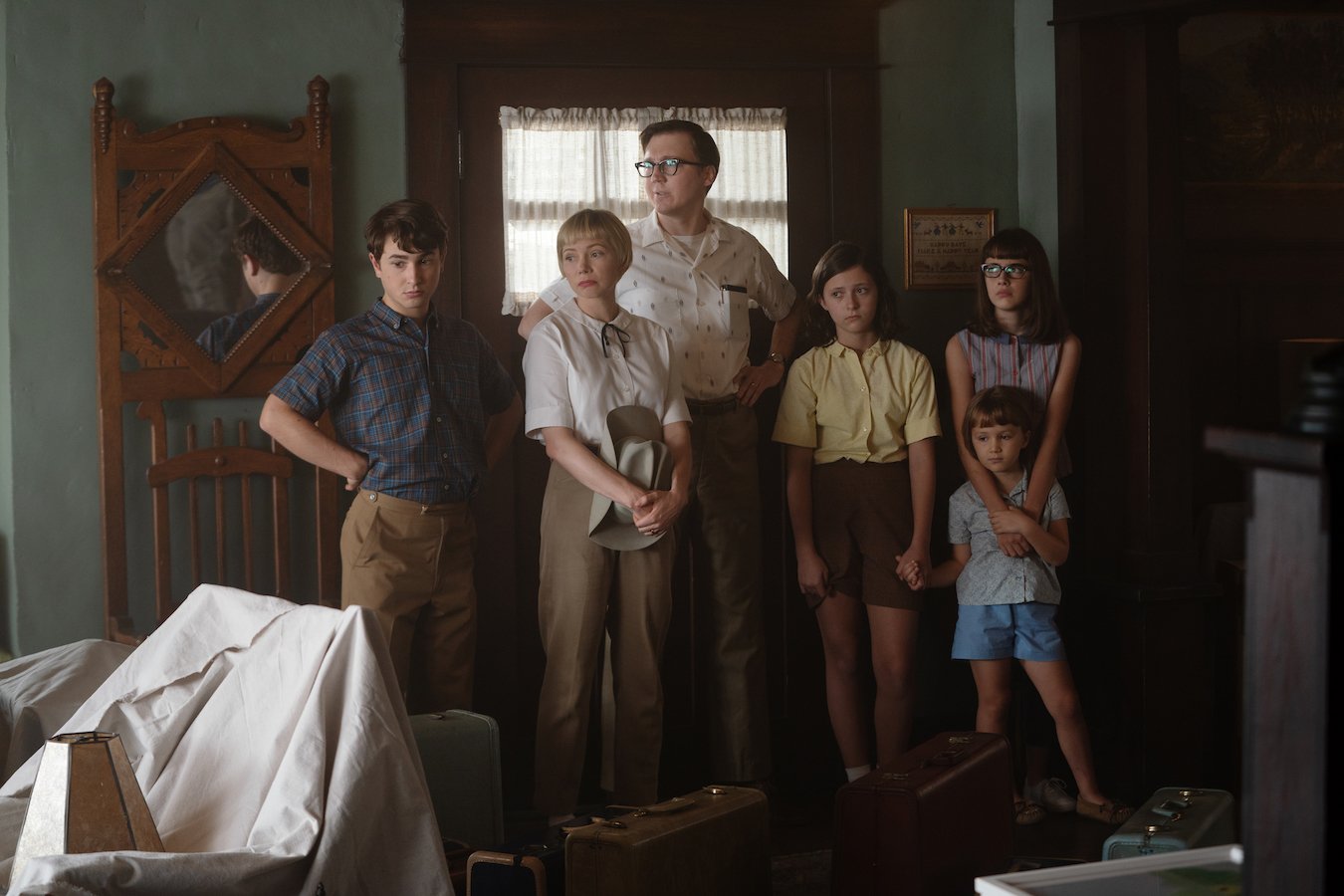I, Spielberg
IF anyone has earned the right to self-mythologising, it’s $10B director Steven Spielberg.
the FAbelmans
Director: Steven Spielberg • Writers: Steven Spielberg, Tony Kushner
Starring: Gabriel LaBelle, Paul Dano, Michelle Williams, Seth Rogen, Judd Hirsch, Julia Butters, Keeley Karsten, Jeannie Berlin, Sam Rechner, Oakes Fegley, Chloe East
USA • 2hrs 31mins
Opens Hong Kong December 29 • IIB
Grade: B+
As a rule I don’t bother with Steven Spielberg. As long as he’s making genre goodies like Jaws or Raiders of the Lost Ark or Jurassic Park or Duel I have no issues. But when he decides to be all serious and make “real” films, he loses me. When he’s meditating on slavery (Amistad, The Color Purple), the Second World War (Schindler’s List, Saving Private Ryan) or press freedom (The Post) his childlike sentimentality gets in the way. There are always exceptions to the rule. His remake of West Side Story kicked all the ass, and Munich is a way, way underrated spy thriller. C’mon, the guy invented the blockbuster and created the industry (for better or for worse) as it is today. When you’ve made nearly 40 features, you’re allowed some stinkers (Ready Player One), and viewers are allowed an irrational nemesis. E.T the Extra-Terrestrial? Yeah, fuck that movie. Still. Buddy knows what he’s doing.
About an hour into Spielberg’s autobiopic The Fabelmans, teenaged StevenSammy Fabelman (Gabriel LaBelle) is up late splicing together a home movie on his flatbed editor – at his father’s request – to help cheer up his mother, crushed at the death of her mother. Sammy is pulling an all-nighter so the next day he can shoot a war epic he’s been planning. The images he’s working on start to reveal a story he doesn’t really want to read, one about his mother Mitzi (Michelle Williams) and an obvious emotional connection to his dad’s friend and co-worker Bennie (Seth Rogen). As Sammy cuts the film, Mitzi plays the piano for his three sisters and Burt (Paul Dano), and Spielberg jumps back and forth between that and Sammy’s dawning realisation of just how powerful the images are – and how he can manipulate the narrative – all set to an elegantly tense score by John Williams. It’s the perfect marriage of theme and story, and the standout sequence demonstrates precisely why you don’t have to like Spielberg, but you must absolutely respect his skill as a filmmaker and storyteller. Trying to argue he’s not that great is contrarian, pointless and above all, wrong.
Spielberg himself has called The Fabelmans his most personal film and, well, duh. The story tracks the burgeoning auteurhood of Sammy, from 1950s New Jersey to late-1960s Los Angeles, as the Fabelman family followed computer engineer Burt to Arizona then suburban California. The action starts when Burt and Mitzi take Sammy to see The Greatest Show on Earth, which inspires him to recreate the film’s rudimentary train crash in the family’s basement. Next comes a Super 8 camera, then a 16mm Bolex, a move out west, the dissolution of the family, a taste of anti-Semitism, the Catholic first love (Chloe East) and always the comfort – and power – of the moving image.
Backed up by his regular squad of cinematographer Janusz Kamiński (The Diving Bell and the Butterfly), editor Michael Kahn (no shit, Trouble Man, Black Belt Jones), and of course Williams, Spielberg’s exploration of his own origins is rambling (but not unfocused), sentimental, and if the film is to be believed, honest. Based on The Fabelmans, it was a complicated relationship with his mother and an uncle, Boris Schildkraut (Judd Hirsch in 10 super-charged, glorious minutes), who understood and explained the tension between art and family, that had the biggest influence on a young Spielberg as he learnt how to make a cup of water the most suspenseful thing you’ve ever seen. There’s a clear-eyed nostalgia, if that makes sense, to The Fabelmans, a delicate balance between fond recollection and formative conflict repackaged for a mass audience. It’s welcoming, warm and fuzzy without being cloying (looking at you, Always), and funny – one of his funniest films (props to co-screenwriter Tony Kushner) and never reliant on Rogen being Rogen-esque.
Long story short, The Fabelmans gets under your skin before you realise what’s happening. Is it going to convert non-believers? No. Is it cutting edge? No, but it’s just so solid it’s hard to deny how effective it is. Anyone who can’t quite articulate why they may be movie buffs will commune with Sammy. Spielberg fans are going to want to hit this for some rare insight into the man’s work. For all Burt and Mitzi’s faults, there’s an undeniable and obvious affection for Arnold and Leah (his actual parents) and the way they shaped him. Dano plays Burt as charmingly clueless, wanting to be the perfect 1950s husband and father and winding up at a distance from his family for it. Williams can do frustrated femininity in her sleep, and she makes Mitzi’s unfocused, inexpressible dissatisfaction almost palpable. LaBelle plays Sammy as what is most likely an idealised version of Spielberg at 16; no new kid is that cool in the face of anti-Semite bullies, and none have the poise to exact the glorious Technicolor revenge Sammy does. But if Spielberg wants to have some fun with his own mythology he’s earned it. By the time he gets to CBS Studios and a five-minute meeting with legendary The Searchers and Stagecoach director John Ford (another filmmaker in just a spectacular cameo) the sources of so many “Spielbergisms” have been revealed. It renders The Fabelmans one of his best; intimacy looks good on him. And it’s nice to know where Sallah’s monkey came from. — DEK



